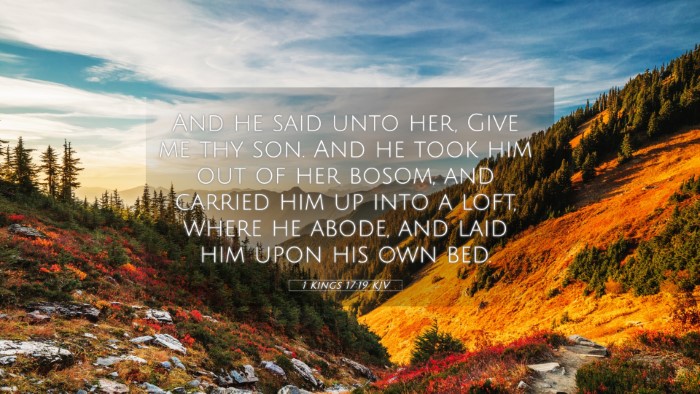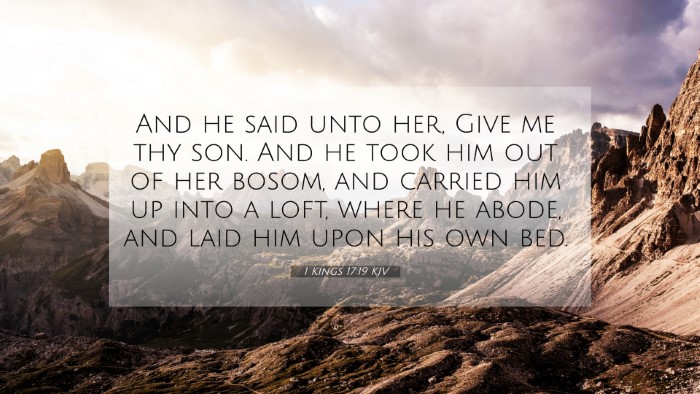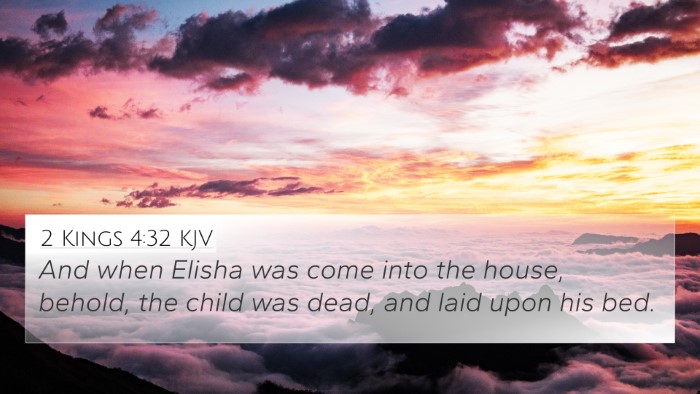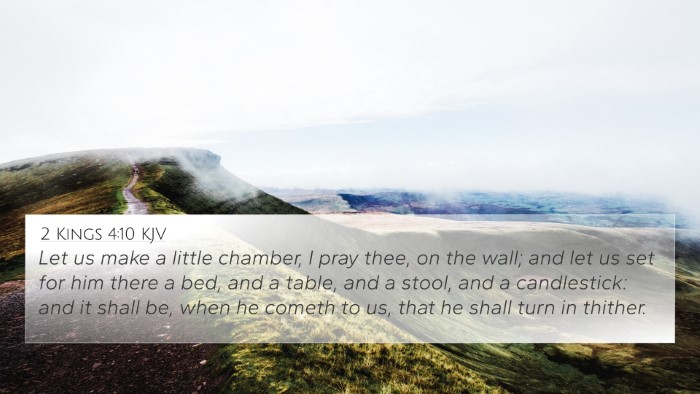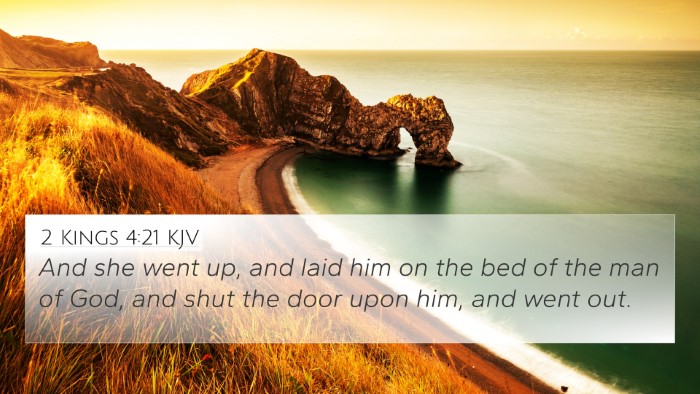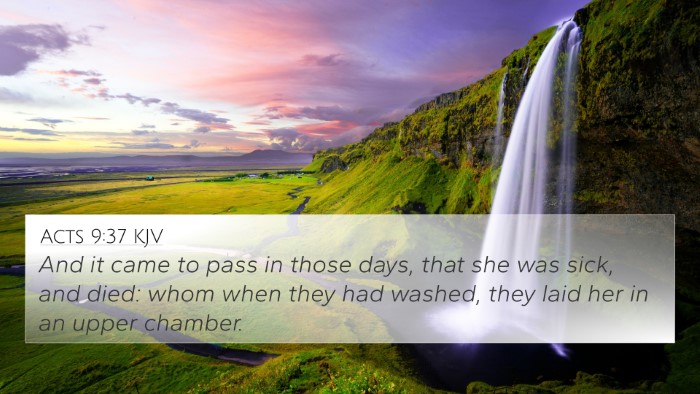Understanding 1 Kings 17:19
1 Kings 17:19 states: "And he said unto her, Give me thy son. And he took him out of her bosom, and carried him up into a loft, where he abode, and laid him upon his own bed." This verse occurs in the context of the narrative involving the prophet Elijah, his ministry, and the miraculous events surrounding it, specifically his interaction with the widow of Zarephath and her son.
Contextual Overview
This passage emerges during a time of great drought and famine in Israel, where Elijah is sent to Zarephath. The narrative illustrates Elijah's role not only as a prophet but also as a man of action and compassion. The widow's son becomes gravely ill, and Elijah's deep concern drives the story forward.
Commentaries Insights
-
Matthew Henry:
Henry interprets this verse as a demonstration of Elijah's profound compassion for the widow, illustrating his commitment to her despite his own challenges. He emphasizes that Elijah's actions reflect a deep concern for the plight of those suffering around him, showcasing the characteristics of a true prophet.
-
Albert Barnes:
Barnes highlights the significance of the act of taking the child "out of her bosom," symbolizing a transfer of care and responsibility. He notes that this action is both physical and emotional, emphasizing the powerful bond between mother and child, which Elijah recognizes and respects.
-
Adam Clarke:
Clarke points out the importance of the loft where Elijah takes the child, suggesting it symbolizes a place of privacy and communion with God. He asserts that this act of separation from the mother underscores the seriousness of the situation and the need for divine intervention.
Thematic Connections
1 Kings 17:19 resonates with several themes throughout the Bible, showcasing God's provision, compassion, and miraculous power.
- The Compassion of God: This verse connects with other scriptures that illustrate God's concern for the downtrodden, such as Psalm 34:18 and Matthew 5:4.
- Miraculous Healings: Similarities can be drawn with the New Testament healings (Mark 5:35-43) where Jesus revives the daughter of Jairus.
- Faith and Trust: The act of the widow trusting Elijah reflects themes in Hebrews 11:1 regarding faith.
Cross-References
Several Bible verses connect directly or thematically with 1 Kings 17:19, offering deeper insights into the text:
- 1 Kings 17:21: Elijah raises the widow's son, revealing God's power over death.
- Luke 7:12-15: The account of Jesus raising the widow's son at Nain parallels Elijah’s story.
- James 5:17-18: References Elijah's prayer and his role in stopping rain, highlighting his faithfulness as a prophet.
- Matthew 14:14: Jesus' compassion when he sees the crowd is reminiscent of Elijah's concern for the widow and her son.
- 2 Kings 4:32-37: Elisha performing a similar miracle in raising a child, connects prophets’ ministries.
- Psalm 30:2: Drawing on themes of God lifting up those who are distressed, akin to Elijah’s actions.
- John 11:43-44: Jesus calling Lazarus from the tomb—another illustration of God's power over life and death.
Cross-Referencing Themes
Understanding the connections between various scriptures aids in deeper theological reflection and comprehension. Tools for Bible cross-referencing like a Bible concordance or a cross-reference Bible study guide can enhance this study experience:
- Identifying connections: By noting how different biblical accounts support each other, one can see the consistent theme of divine intervention throughout Scripture.
- Comparative Bible verse analysis: Comparing the interactions of prophets across both the Old and New Testament highlights God's continued engagement with humanity.
Conclusion
1 Kings 17:19 serves as an essential passage for understanding the nature of God’s compassion and miraculous ability to intervene in human suffering. The layers of meaning and the connections between this verse and others throughout the Bible provide a rich tapestry of inter-Biblical dialogue, enhancing our knowledge and faith.
Through tools like Bible cross-reference guides, believers can pursue deeper studies into the scripture, gaining insights that can support theological doctrines and personal faith journeys.

